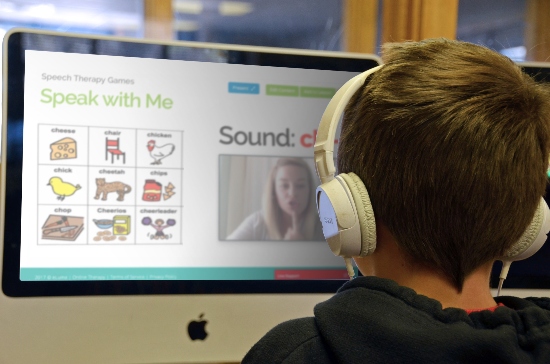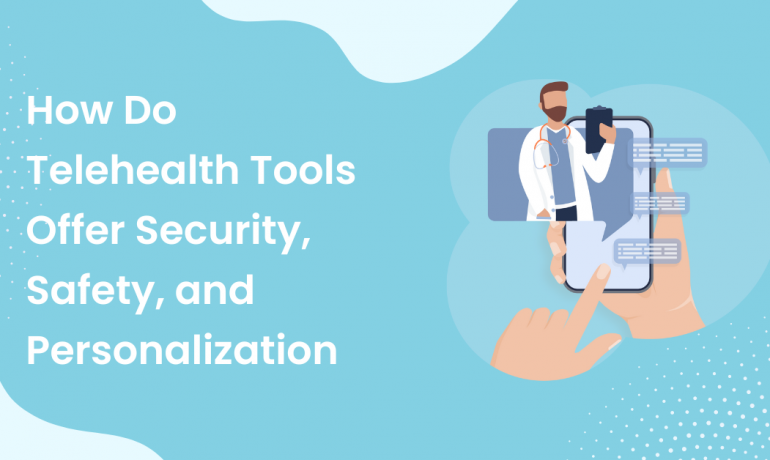Speech therapy is a highly specialized field that offers specific necessary services. As physicians and experts in this field, you might be hesitant to use video conferencing services and tools. You might be asking, “How will my practice translate through a virtual session? Will it provide the same care and support for my patients?”
The answer is yes. Telehealth and the various video conferencing systems available will not only offer you the same benefits as an in-office visit, but they will also provide you with more accessibility and freedom to communicate with your patients.
When using telehealth as a path for speech therapy services, the benefits are countless. The technology in these video conferencing systems offers for the first time access and benefits that are specially built and programmed for its systems. In fact, teletherapy (regardless of the specific type of therapy) is viewed favorably by over three-quarters of therapy patients, according to the IBCCES (International Board of Credentialing and Continuing Education Standards).
In-Person Versus Virtual Speech Therapy
In person, the way that speech therapy is carried out differs depending on whether the patient is a child or an adult. For children, a classroom is not an uncommon setting in which to meet with a speech-language pathologist (SLP). Common methods for helping the child involve playing and reading. For adults, on the other hand, they can expect to use techniques like breathing and oral exercises. In addition, the focus for adults in speech therapy is often to overcome cognitive and social difficulties stemming from conditions affecting speech, and the special methods that the SLP uses will be geared towards mitigating these problems.
The main difference between in-person and virtual speech therapy is that, of course, virtual speech therapy requires communicating with patients via a webcam, or even a tablet or phone.
Why Should Your Patients Try It?
And what about the reasons patients should consider virtual speech services? We can convince patients who live quite a distance away from the office to try out teletherapy by emphasizing how much easier it will be to log on to their computer or tablet for a therapy session than to drive a long distance. The quality of the speech therapy will remain the same, but the method of accessing it will simply be more convenient.

In addition, since there are no transitions involved with virtual appointments, the time that would have normally been taken up by these transitions can instead go towards serving patients. Patients will have more options when it comes to choosing an appointment time that will suit them best.
And if that’s not all, there’s the additional benefit of online therapy being much cheaper than in-person therapy. If nothing else, this fact alone should be enough to convince your patients to give virtual therapy a try.
Speech Therapy in the Time of Telehealth
The built-in technology in video conferencing systems will ensure that speech therapy will run the way it does during in-office sessions with even more additional benefits that may make these sessions easier for you and your patients.
These are a just the few ways that the technology of video conferencing systems like HIPAA Video's own telehealth tools can benefit you:
- HIPAA-compliant video conferencing systems allow safe and secure communication that ensures that speech therapists can communicate freely and accurately with patients virtually.
- Being virtual will allow patients that have difficulty coming to in-office visits the accessibility to receive the therapy and services they need.
- Built-in scheduling systems make it organized and easy to schedule appointments with your patients.
- Transactions are handled through secure and HIPAA-compliant systems and software.
- Nifty and useful video conferencing tools and features provide ways for you to smoothly run your sessions.
- Most systems have a recording option to record and save your sessions with patient consent. This will allow you to keep track and go back to observe a specific patient’s progress.
- Microphones and sounds systems are made clear through video conferencing systems and ensure clarity and the ability to record for you and your patients to come back to.
- The notepad and whiteboard features will allow you to write things down virtually to share and communicate with patients during these sessions.
- The share screen tool allows you to share your screen to show books and documents you may need in a speech therapy session.
- Video conferencing systems will also allow for group sessions and this is a benefit for interactive and group sessions.
These are just ten benefits of video conferencing systems for speech therapy. The unique technology and features available solely through telehealth make it easy for you to hold your sessions and appointments and provide your patients with an experience and benefits that they can’t get anywhere else.
The Future of Speech Therapy and Telehealth
Now that a virtual component has been introduced to speech therapy, how will this affect the way that speech therapy is conducted moving forward? While no one can know for sure, there are several theories on the matter.

First of all, for any immediate concerns that may require a trip to one’s local urgent care, virtual visits may become the norm. This would allow for smaller immediate concerns to be addressed from home and for larger concerns to be addressed in person, so as not to clutter up doctor’s offices and emergency rooms with too many visitors.
Another possibility might be what is called omnichannel care, which would allow for patients to receive hybrid treatment. In this way, patients would be able to reap the benefits of both virtual and in-person care.
Also, patients may be able to self-administer drugs at home under the virtual supervision of a healthcare provider. This is something many may not have even considered in the past, but it may one day become a reality.
Aside from all of this, it is predicted that new technology will emerge in the future that will truly transform speech therapy. For instance, SLPs may one day find a use for 3D printers and virtual reality in their sessions with clients. The possibilities that may arise are exciting to imagine.
These are only some of the ways that virtual services can revolutionize speech therapy in the future. Virtual speech therapy has already changed the way we help our patients for the better, and things can only get better from here.
So, is telehealth valuable to speech therapy? Due to all the amazing benefits for both SLPs and patients, it seems that virtual speech therapy is the way to go. According to research from such places as Kent State University and the Ohio Department of Public Education, virtual speech therapy is just as effective as in-person speech therapy for children. Due to such positive results, the American Speech-Language-Hearing Association (ASHA) even gave virtual speech therapy its official stamp of approval (in 2005--long before the arrival of the 2020 pandemic!). Therefore, it’s advisable that any SLP who is hesitant to start delivering virtual therapy consider doing so. After all, the research is in your favor!





